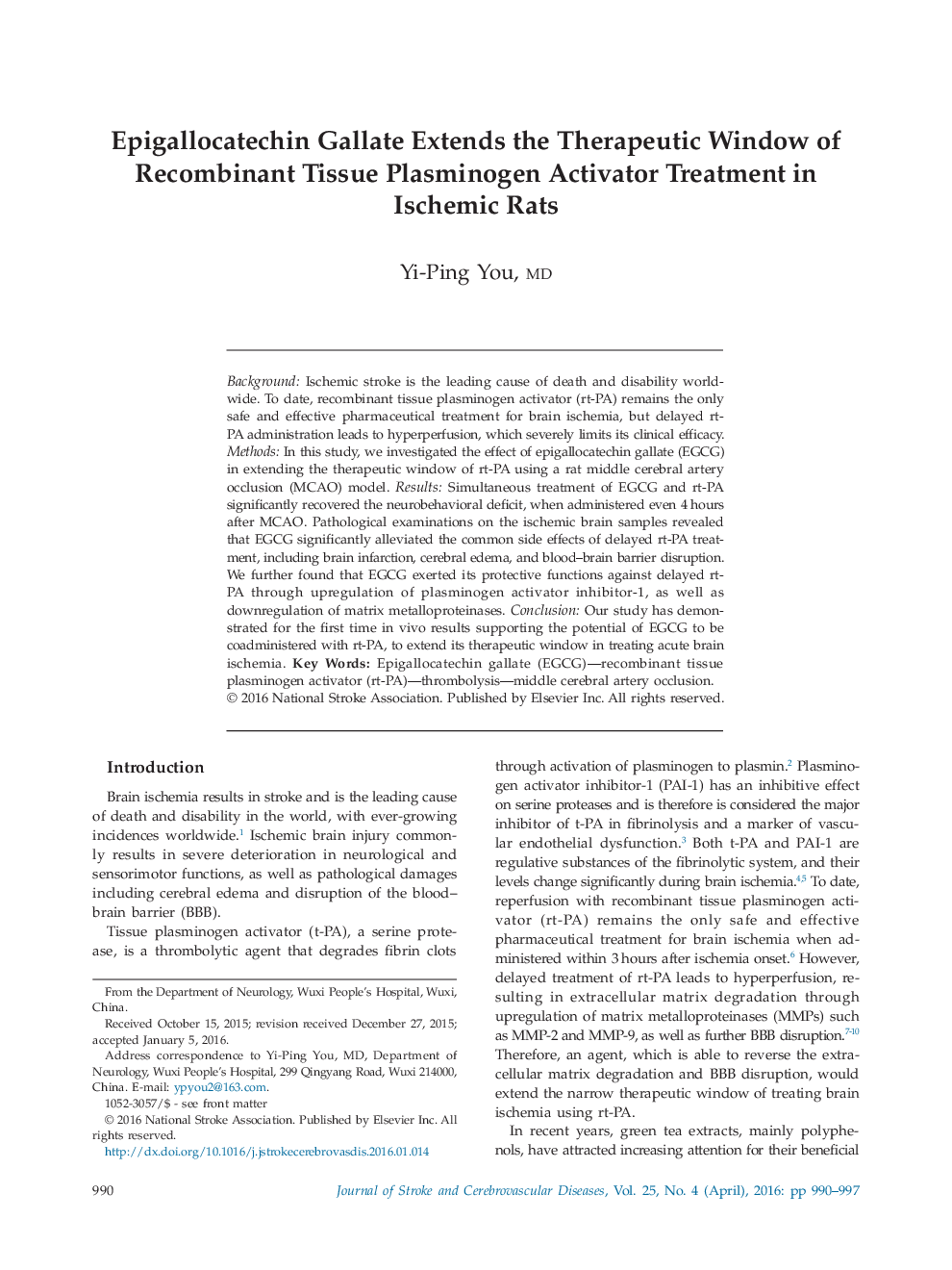| Article ID | Journal | Published Year | Pages | File Type |
|---|---|---|---|---|
| 2701636 | Journal of Stroke and Cerebrovascular Diseases | 2016 | 8 Pages |
BackgroundIschemic stroke is the leading cause of death and disability worldwide. To date, recombinant tissue plasminogen activator (rt-PA) remains the only safe and effective pharmaceutical treatment for brain ischemia, but delayed rt-PA administration leads to hyperperfusion, which severely limits its clinical efficacy.MethodsIn this study, we investigated the effect of epigallocatechin gallate (EGCG) in extending the therapeutic window of rt-PA using a rat middle cerebral artery occlusion (MCAO) model.ResultsSimultaneous treatment of EGCG and rt-PA significantly recovered the neurobehavioral deficit, when administered even 4 hours after MCAO. Pathological examinations on the ischemic brain samples revealed that EGCG significantly alleviated the common side effects of delayed rt-PA treatment, including brain infarction, cerebral edema, and blood–brain barrier disruption. We further found that EGCG exerted its protective functions against delayed rt-PA through upregulation of plasminogen activator inhibitor-1, as well as downregulation of matrix metalloproteinases.ConclusionOur study has demonstrated for the first time in vivo results supporting the potential of EGCG to be coadministered with rt-PA, to extend its therapeutic window in treating acute brain ischemia.
